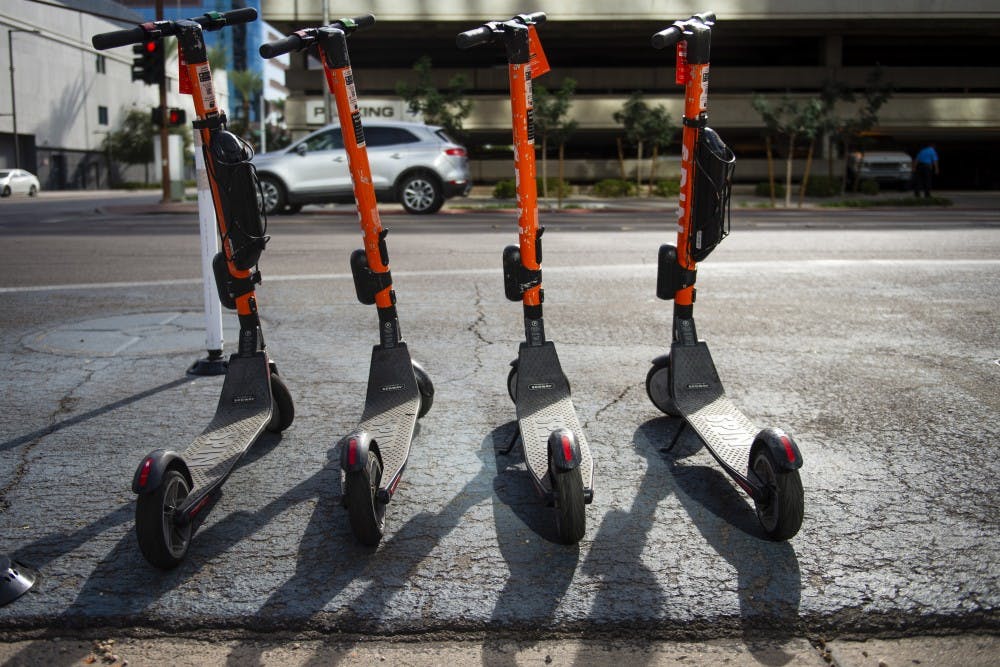Shared electric scooters are a valuable tool for ASU students in downtown Phoenix and Tempe to get from one place to another, and ASU should reevaluate its policies on e-scooters and work with Valley cities to establish scooters' presence on campus.
Spin, a company based in San Francisco, is currently the sole e-scooter vendor operating in Phoenix. Spin also operates in Tempe alongside two other vendors, Razor and Bird. Other vendors — most notably Lime — have pulled out of both markets, citing liability issues, fees and profitability struggles.
Most motorized scooters, with exceptions, are banned on all ASU campuses.
"They're clearly popular," said Michael Kuby, a professor of geographical sciences and urban planning. "They clearly are fun to ride, and for people who – for whatever reason – don’t want to ride a bike, don’t own a bike … It definitely fills a niche."
Kuby also pointed out that the devices can be used to provide greater access to public transportation, including easing a student's journey between their dormitory or apartment and the nearest Valley Metro light rail stop.
"Every transportation trip is door to door," Kuby said. "When you have to get from that bus stop or train station to your final destination ... the scooters and the bike share are really valuable for people that have more than a half-mile walk at the end of their public transportation trip."
The most common concerns expressed by Valley residents about the scooters include the danger they pose to riders and the high frequency of improper parking by riders.
As of June 2019, Tempe St. Luke's Hospital was averaging one to three scooter-related injuries in its emergency room each day.
In addition, the city of Tempe's release of liability agreements for both riders and vendors of the scooters require parties to agree that riding them is "inherently hazardous."
The city of Phoenix requires riders to park the scooters in designated zones. The city of Tempe, however, does not — which has led to lots of gripes about scooters dumped haphazardly all over neighborhoods and sidewalks.
Tempe instead regulates where companies can place their scooters for riders to access and requires that companies inform their customers of safe parking practices.
Kuby emphasized the importance of safely parking the scooters.
"Just take an extra five seconds and park the scooter somewhere where people won’t trip over it, or the rest of the residents of the city are going to rise up in arms and get the scooters out of this area," he said.
As long as e-scooters are used and parked safely by everyone — which vendors and riders can continue working toward — the devices are an asset to our communities, especially to students on the Downtown Phoenix and Tempe campuses.
"They’re fun, they’re convenient, they’re fast, and they definitely extend the reach of transit so that’s a real positive," Kuby added.
ASU campuses should work with the cities of Tempe and Phoenix to ensure that the scooters are here to stay and are no longer banned on campuses.
Reach the columnist at bdoemel@asu.edu or follow @brockdoemel on Twitter.
Editor’s note: The opinions presented in this column are the author’s and do not imply any endorsement from The State Press or its editors.
Want to join the conversation? Send an email to opiniondesk.statepress@gmail.com. Keep letters under 500 words and be sure to include your university affiliation. Anonymity will not be granted.
Like The State Press on Facebook and follow @statepress on Twitter.




